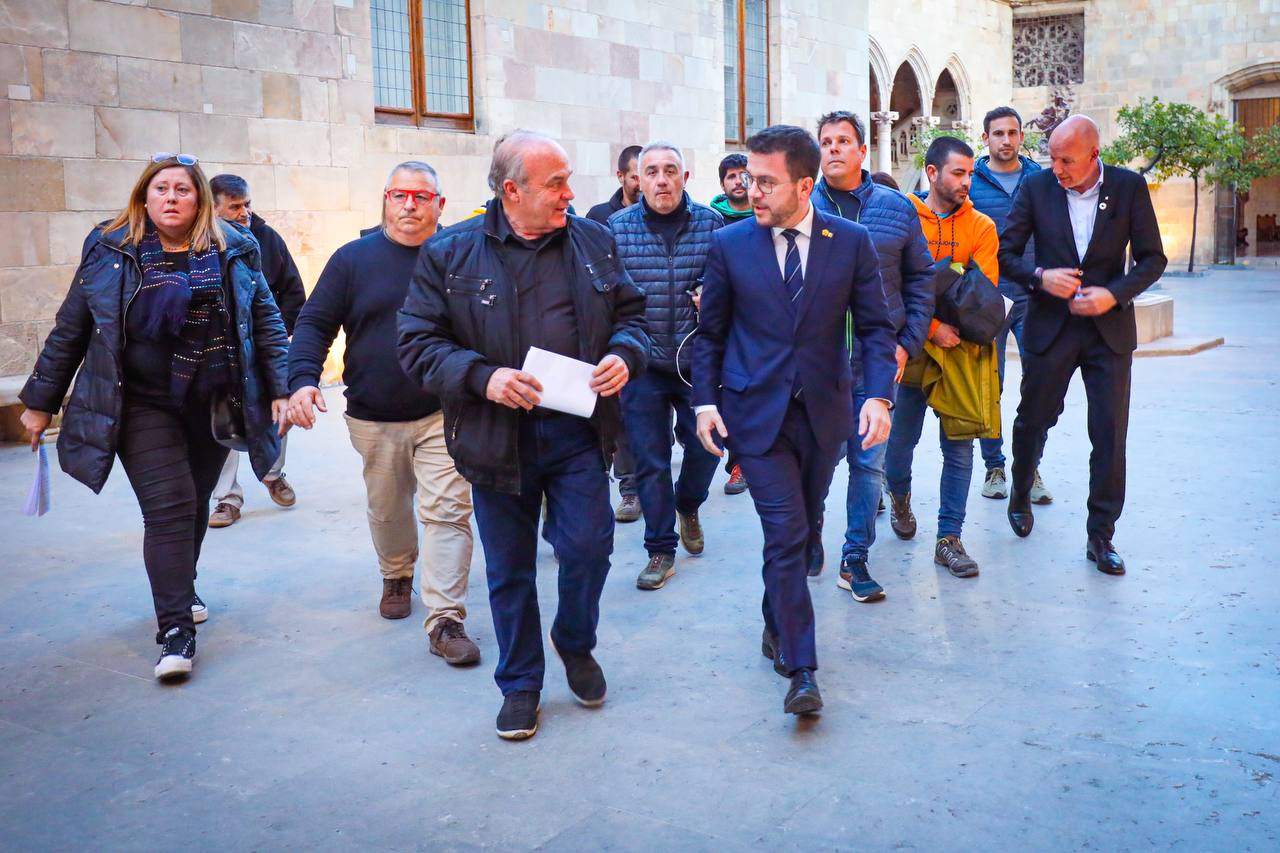On a day which dawned with Catalan farmers maintaining their roadblock protests on the AP-7 trunk motorway and after days of protests arising from the economic, sustainability and bureaucratic difficulties of the sector, Catalonia's livestock farmers and cultivators have managed to get their first firm commitments from the Pere Aragonès government. Catalan rural affairs and climate minister David Mascort and the farmers' group Plataforma Pagesa have held the first of the planned meetings to move forward in the search for solutions to the critical situation being experienced in the countryside. During the meeting, issues relating to three key areas were addressed: the alteration of the Special Drought Plan, the simplification and streamlining of bureaucracy and European aid from the Common Agricultural Policy. In all three aspects, the Catalan government has had to accept the force that the land-based movement has shown and has given way to some of the demands. In parallel, the farmers' overnight roadblocks of the AP-7 motorway in Girona and the 24-hour blockade of the Port of Tarragona have both been called off this Wednesday - although with the proviso that a failure to comply will see a return to highway action.
The most notable capitulation by the Catalan government in today's negotiations has been over drought measures. Just two weeks after Catalonia's three-year drought moved into emergency situation, the government has decided to reduce some water restrictions that farmers considered abusive, which were focused almost exclusively on the primary and secondary sectors - agriculture and industry. For livestock farming, the Government had decreed a 50% reduction in water use from now on. Now, however, livestock farms will be able to "guarantee the survival of animals", and there will also be an action plan to "solve the water deficits" of those farms that do not have access to water. Meanwhile, for cultivators - which were facing restrictions of 80% - the governmment of the Generalitat has also committed to allow enough water use to "guarantee the survival of tree-based and permanent crops". In addition, at least 20% of the normal water endowment will be ensured to producers and irrigator communities, and up to 80% of the losses of farmers who have suffered water restrictions will be financially compensated.
Moreover, in the context of the drought, more proposals are likely too, as a joint working table between the Catalan government and farmers is to be created, with the aim of modernizing irrigation systems and efficiency of water use, incorporating regenerated water into irrigated areas, and implementing new irrigation systems in areas of Catalonia affected by climate change. In this way, farmers and growers will have a say in the new measures announced by the Generalitat.
Europe and bureaucracy
There were also other understandings reached at today's talks. Minister Mascort has given details of the measures already put in place by the government to speed up procedures and increase transparency of the payment calendar to farmers. Yesterday, it was already announced that the launch of any new bureaucratic requirement that depends on the Catalan government will be postponed. Now, the executive has gone further and is undertaking to study options such as the implementation of more intuitive and easier IT applications and a greater simplification of the department's data requirements in any bureaucratic procedure. Maskort will also request the Spanish ministry of agriculture, fisheries and food to postpone the application of the Digital Workbook until 2026, as foreseen by Europe. In addition, he will be ask for data entry to be made more flexible so that it only needs to be done once a year and only with the essential information. However, the agreed document indicates that the Catalan government "commits itself to the bureaucratic simplification of the agricultural sector".

